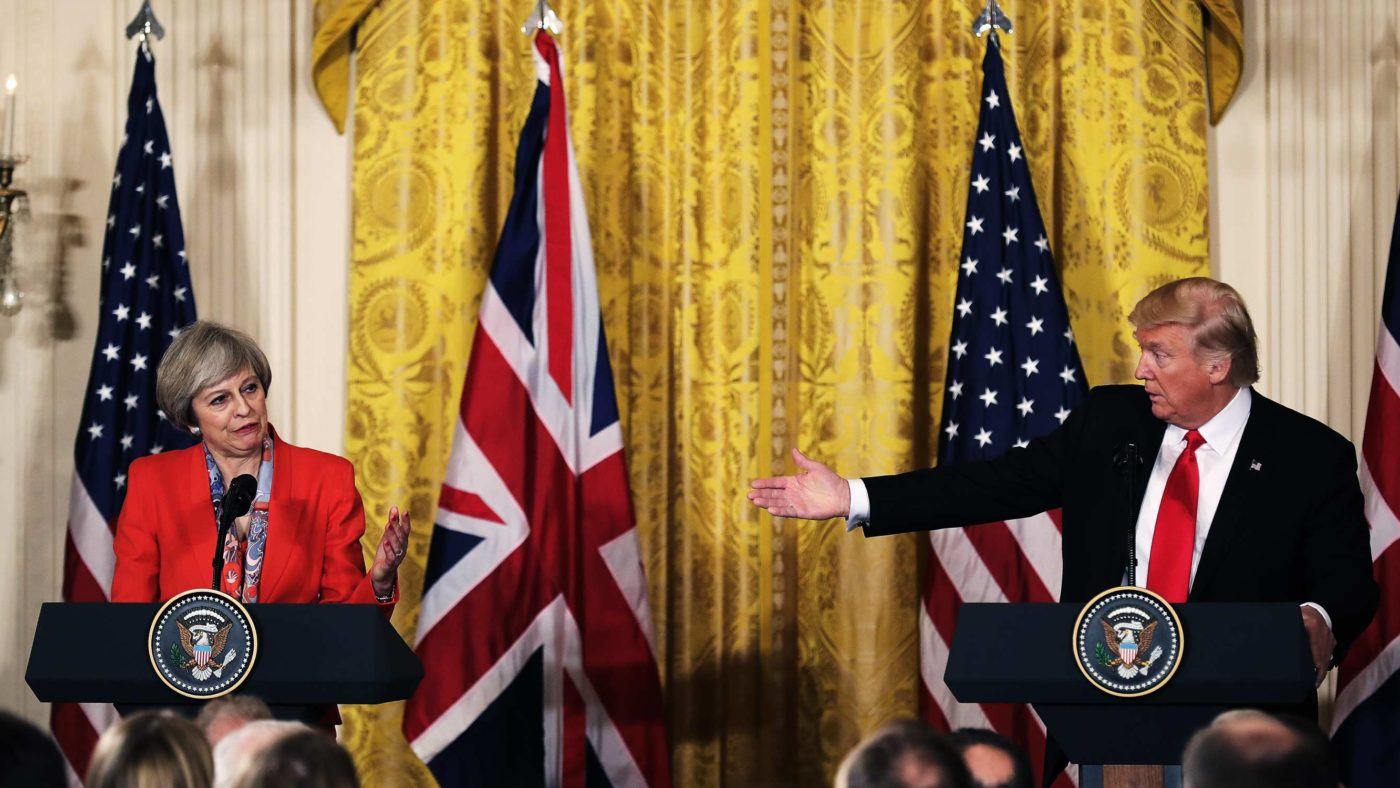Well, that was excruciating.
On the face of it, Theresa May’s visit to Washington was a triumph. Her speech to Republicans, articulating a new role for Britain in the world, won rave reviews. And her press conference with President Trump could have been scripted by a Downing Street apparatchik.
As well as accepting the strategic offer of a state visit, he spoke of renewing America’s “deep bond with Britain – military, financial, cultural and political”, and dropped the longed-for magic words (“Special Relationship”) into practically every sentence. It was almost enough to make you forget that the White House couldn’t actually spell her name.
Nor, to Mrs May’s immeasurable relief, did the President go notably off-message. He was, she insisted, 100 per cent behind Nato – and he did not demur.
He even backtracked on his commitment to reintroducing torture, saying that while his strong belief was that it worked, he would defer to the expertise of his far more sensible Secretary of Defence, Gen Jim “Mad Dog” Mattis.
But still. The whole press conference, like any Trump appearance, was an exercise in nails-on-chalkboard tension. At any point, in answer to any question, there was a sense that the new President could casually upend decades of policy, could shift the course of the nation, just because he felt like it.
For Mrs May, it must have been a nerve-wracking experience. Particularly because of the edge of alpha-male menace that Trump managed to inject into his repartee.
After the first British reporter to be called on, the BBC’s Laura Kuenssberg, asked an appropriately pointed question, he turned to May and said: “This was your choice of a question? There goes that relationship…”
Later, in response to questions about Mexico and Putin, he started musing about how relationships that start well can suddenly turn sour, adding:“Theresa, we never know about these things, do we?”
The key to Trump’s personality, and in some ways his appeal, is his unpredictability. As a showman, he knows that not being sure of what to expect keeps people tuning in. And as a boss, he knows that it keeps his subordinates nicely motivated.
Just as pack leaders among some large primates keep order through unpredictable acts of brutal aggression, so Trump almost revels in the unease he generates, and the way it makes others dance to his tune.
The thing is, as is already glaringly apparent, this is not a terribly sensible way to run a country. Trump thrives on surprise. Yet in diplomacy in particular, surprise is the very last thing anyone wants.
Already in this first week of the Trump administration, we have seen policy-making by Twitter, informed by whatever segments happen to be playing on Fox News at the time. We have seen statements issued, bearing scant relation to reality, based on perceived slights or grievances.
In short, Trump’s administration may turn out to be a good thing for the world, or a very, very bad one. But it’s already apparent that it’s going to be hell on our collective nerves.
This article was taken from CapX’s Weekly Briefing email. Subscribe here.


